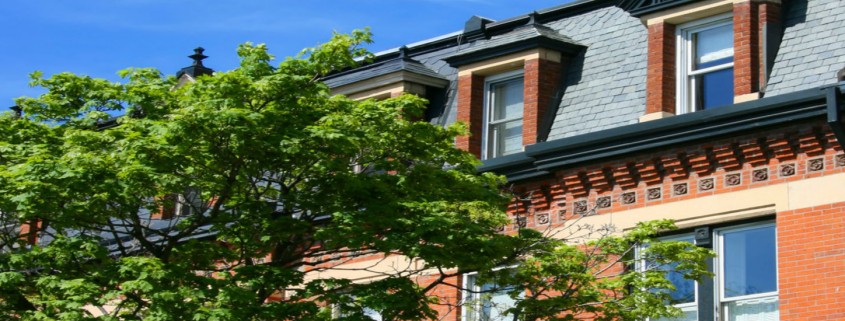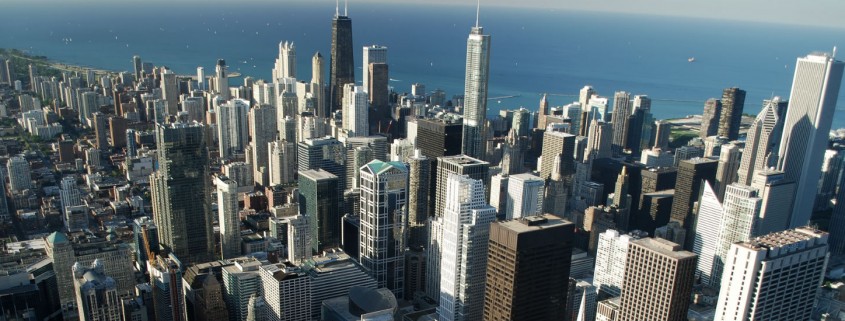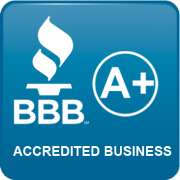Lake County Adopting New Measures in Response to Covid-19
/in NewsMay 13, 2020
On May 12, 2020, in response to the Covid-19 pandemic, the Lake County Board passed measures to ease property tax burdens for Lake County residents and property owners.[1]
Lake County announced the following measure to address the current situation as it relates to 2019 Property Tax Bill payments due in 2020:
- Property owners will be given more time to pay their property tax bills. The installments will be increased to four installments rather than the usual two installments. The schedule for the 2019 Property Tax Bill installments are as follows:
- 50% of the first installment payment is due by June 8, 2020
- 50% of the first installment payment is due by Aug 7, 2020
- 50% of the second installment payment is due by Sept 8, 2020
- 50% of the second installment payment is due by Nov 9, 2020
Click Here for full Lake County Press Release: https://content.govdelivery.com/accounts/ILLAKE/bulletins/28b377d
Saranow Law Group, LLC is here to address all of your property tax concerns. Please click on the following link to learn more on how you can start saving money on your upcoming property tax bills. FREE PROPERTY TAX CONSULTATION FORM
Phone: (312) 373-0015
Email: info@saranow.com
COOK COUNTY ASSESSOR ADJUSTMENTS TO APPEAL DEADLINES
AND 2020 VALUATIONS
/in NewsBy: William Saranow
DEADLINE ADJUSTMENTS
The Cook County Assessor’s Office recently adjusted its deadlines to file property tax appeals due to the ongoing COVID-19 situation. All Townships that have already received their 2020 Assessment Notices from the Cook County Assessor’s Office, will be given until May 1, 2020 to file their assessment appeal with the Cook County Assessor’s Office.
The following Townships are due on May 1, 2020 to file assessment appeals with the Assessor’s Office:
- Barrington
- Evanston
- New Trier
- Norwood Park
- Oak Park
- Palos
- River Forest
- Riverside
- Rogers Park
For all other Townships, 2020 Assessment Notices will be mailed on a rolling basis, so it is important to make sure you keep a look out for the assessment notice to arrive in the mail. The deadline to file at the Assessor’s Office is 40 days from the 2020 assessment published date. If you miss the opportunity to file at the Assessor’s Office, an opportunity to file an appeal at the Board of Review will still be available later in the year.
For updated information regarding deadlines contact our office or visit the following Assessor website link: https://www.cookcountyassessor.com/assessment-calendar-and-deadlines
ASSESSMENT VALUATION ADJUSTMENTS
According to the Cook County Assessor’s website, South Suburban 2020 reassessments will be adjusted to reflect the estimated effects of the Covid-19 outbreak on property values. Additionally, North Suburban and Chicago properties will receive adjusted assessed values later in the year after the appeals have been processed. The adjustments to the property values will be reflected on second installment tax bills payable in 2021. It is still not clear on how much the adjustments the Assessor will grant to properties will be, but it is good news that some relief will be provided to Cook County residents to reflect the current market conditions.
For more updated information contact our firm or visit the Assessor’s website:
https://www.cookcountyassessor.com/assessment-calendar-and-deadlines
LEARN MORE ABOUT FILING A PROPERTY TAX APPEAL
Nobody should pay more than their fair share in property taxes. Learn more about filing a 2020 appeal and start saving money on your property tax bills:
AND 2020 VALUATIONS
Chicago Southwest Suburbs Property Tax Reassessment
/0 Comments/in Frontpage Article, NewsSaranow Law Group: Cook County Assessor’s Office to Reassess all North and Northwest Suburbs in 2016
/0 Comments/in Frontpage Article, NewsThe Cook County Assessor’s Office will be reassessing all properties in the North and Northwest Suburbs of Chicago throughout 2016. Homeowners will have 30 days from the Publication Date of the Reassessment Notice to file a property tax appeal at the Cook County Assessor’s Office.
If a Property Owner misses the window to file an appeal at the Cook County Assessor’s Office a property tax appeal may be filed at the Cook County Board of Review, which will be open for appeals this fall.
Publication Dates of Assessments and Deadlines at the Cook County Assessor’s Office:
TOWNSHIP PUBLICATION DATE DEADLINE
- Evanston February 26, 2016 March 28, 2016
- New Trier March 2, 2016 April 4, 2016
- Barrington March 17, 2016 April 18, 2016
- Palatine April 7, 2016
- Norwood Park April 21, 2016
- Elk Grove May 5, 2016
- Maine May 26, 2016
- Leyden June 15, 2016
- Wheeling July 8, 2016
- Northfield July 28, 2016
- Schaumburg August 16, 2016
- Niles September 1, 2016
- Hanover September 9, 2016
The deadline to file an appeal at the Cook County Assessor’s Office will be 30 days after the Publication Date. Please note that these dates are subject to change. Please click here to view the dates on the Cook County Assessor’s website.
Contact Saranow Law Group today for a Free Consultation and see how you can lower your assessment and save money on your next property tax bill by filing a property tax appeal.
You can like our Facebook page or follow us on twitter for latest updates.
Property Tax, Pension, and School Funding Debate – Cook County
/0 Comments/in NewsThe Cook County property values in 2015 recorded an upward swing. This raises tax liability for property owners proportionately. According to Cook County Clerk David Orr, property values in Cook County increased by 1.8 percent in 2014; the first increase since the 2008 recession. In the last five years, Cook County has raised the amount of property tax. Critics have argued that the rate at which property tax increases is faster than the land appreciation rate eating away disposable income for most households.
Cook County Property Tax
Property Bill 2015 has created a heated debate over the last two months. The bill will see the average homeowner pay an additional $89.44 in property tax, representing a 2.28 percent increase. The average total property tax for the average homeowner is estimated to reach $3,326.55. The increase will vary across Cook County. In the northern half, the percentage increase is less than 2.4 percent. However, the tax bill will remain higher given that property values are higher in this region than any other part in Cook County. The increase is estimated to rise from $155.49 to $6,544.09 in the region. Southern suburbs will see an average decline of $51.33 in property tax compared to last year. The region was reassessed recently, and Cook County proproses a levy of $4,850.23 representing a reduction of 1 percent.
What this implies is that your property tax, calculated as a percentage of your home’s value, is declining by 6.81% and 13.05% in Chicago and the southern suburbs, respectively. However, this is only a theoretical calculation. In practice, the actual property tax levied will rise regardless of the family income even if it remained constant.
School Funding
Land value rose in the city by 4 percent in 2015. Expiration of the Chicagos’ huge Near South Tax Increment Financing District is responsible for the hike. It collected a total of $65 million in property tax that was used for Tax Increment Financing (TIF) purposes in 2014. In the future, the $65 million will be channeled to the regular tax pot. This means that The Cook County Public Schools will receive funds from the source. Public schools will be allowed to levy a property tax by the state’s property law.
Cook County public schools, and the city itself, face a huge demand for revenue. Spiraling pension debt will take a huge chunk of the new money. Public schools will be left with little to gather for development projects. With the loss of Tax Increment Financing (TIF), Cook County will have to look for alternative sources of fundraising for public schools that will go to development projects such as building schools, transit stations, parks, etc. In recent years, Tax Increment Financing (TIF) was responsible for funding public schools.
For now, if your home value rises, be prepared for a huge tax liability. The Alternative Homestead Exemption commonly referred to as the 7 percent Assessment Cap, has been nullified in the city, and the northern suburb with the process in the advanced stages of phasing out in the southern suburb. In 2014, the property tax levied in Cook County was $12.37 billion, up 2.16 percent from 2013. Under the new law, the increment should be less than 1 percent in 2015 due to low inflation exclusive of any Tax Increment Financing (TIF) expirations and income generated from new property developments.
For more information visit our website and sign up for our free mailing list to receive the latest news updates on Cook County property tax, pension and school funding and much more. You can also like our Facebook page or follow us on twitter for latest updates
Saranow Law Group | Property Tax, Pension, and School Funding Debate – Cook County
/0 Comments/in NewsThe Cook County property values in 2015 recorded an upward swing. This raises tax liability for property owners proportionately. According to Cook County Clerk David Orr, property values in Cook County increased by 1.8 percent in 2014; the first increase since the 2008 recession. In the last five years, Cook County has raised the amount of property tax. Critics have argued that the rate at which property tax increases is faster than the land appreciation rate eating away disposable income for most households.
Cook County Property Tax
Property Bill 2015 has created a heated debate over the last two months. The bill will see the average homeowner pay an additional $89.44 in property tax, representing a 2.28 percent increase. The average total property tax for the average homeowner is estimated to reach $3,326.55. The increase will vary across Cook County. In the northern half, the percentage increase is less than 2.4 percent. However, the tax bill will remain higher given that property values are higher in this region than any other part in Cook County. The increase is estimated to rise from $155.49 to $6,544.09 in the region. Southern suburbs will see an average decline of $51.33 in property tax compared to last year. The region was reassessed recently, and Cook County proproses a levy of $4,850.23 representing a reduction of 1 percent.
What this implies is that your property tax, calculated as a percentage of your home’s value, is declining by 6.81% and 13.05% in Chicago and the southern suburbs, respectively. However, this is only a theoretical calculation. In practice, the actual property tax levied will rise regardless of the family income even if it remained constant.
School Funding
Land value rose in the city by 4 percent in 2015. Expiration of the Chicagos’ huge Near South Tax Increment Financing District is responsible for the hike. It collected a total of $65 million in property tax that was used for Tax Increment Financing (TIF) purposes in 2014. In the future, the $65 million will be channeled to the regular tax pot. This means that The Cook County Public Schools will receive funds from the source. Public schools will be allowed to levy a property tax by the state’s property law.
Cook County public schools, and the city itself, face a huge demand for revenue. Spiraling pension debt will take a huge chunk of the new money. Public schools will be left with little to gather for development projects. With the loss of Tax Increment Financing (TIF), Cook County will have to look for alternative sources of fundraising for public schools that will go to development projects such as building schools, transit stations, parks, etc. In recent years, Tax Increment Financing (TIF) was responsible for funding public schools.
For now, if your home value rises, be prepared for a huge tax liability. The Alternative Homestead Exemption commonly referred to as the 7 percent Assessment Cap, has been nullified in the city, and the northern suburb with the process in the advanced stages of phasing out in the southern suburb. In 2014, the property tax levied in Cook County was $12.37 billion, up 2.16 percent from 2013. Under the new law, the increment should be less than 1 percent in 2015 due to low inflation exclusive of any Tax Increment Financing (TIF) expirations and income generated from new property developments.
For more information visit our website and sign up for our free mailing list to receive the latest news updates on Cook County property tax, pension and school funding and much more. You can also like our Facebook page or follow us on twitter for latest updates




